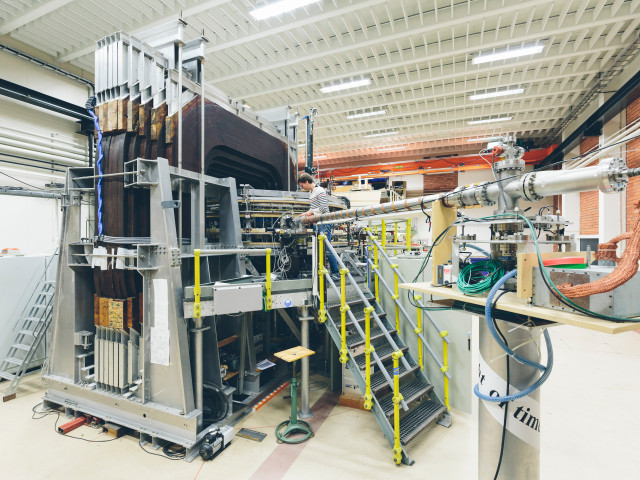The course will be conducted in seminar form, where invited speakers will discuss various aspects of the topics above. As a student, you should, apart from actively taking part in the seminars, also read, form an opinion on, and present a scientific paper. The presentations will be done under conference-like forms, during two days at the end of the course. There too, you are expected to take part actively, thus contributing to the quality of the seminar, and also you get the opportunity to listen to well prepared presentations from a broad spectrum of research fields.
SH2007 Research Methodology in Physics 3.0 credits

Information per course offering
Information for Autumn 2026 Start 26 Oct 2026 programme students
- Course location
AlbaNova
- Duration
- 26 Oct 2026 - 11 Jan 2027
- Periods
Autumn 2026: P2 (3 hp)
- Pace of study
17%
- Application code
51384
- Form of study
Normal Daytime
- Language of instruction
English
- Course memo
- Course memo is not published
- Number of places
Places are not limited
- Target group
- CTFYS, TNEEM, TTFYM. Mandatory TNEEM åk2
- Planned modular schedule
- [object Object]
- Schedule
Contact
Course syllabus as PDF
Please note: all information from the Course syllabus is available on this page in an accessible format.
Course syllabus SH2007 (Spring 2022–)Content and learning outcomes
Course contents
Intended learning outcomes
As a professional physicist/engineer, whether you are active in industry, academia or a governmental authority, you must be able to orient yourself in a specific scientific or technical field, form an opinion on a result or statement, and summarize and present your own or others work. In a typical 'philosophy of science' course you learn about the conditions under which research in general, fundamental or technical, is conducted. In this course, this will be put in a 'physics' context. That is, how does a physicist assess other peoples results, that may not be within his or her main subject? How should technical scientific results in physics be communicated to colleagues in an efficient and professional way?
In the course, you as a student will work with already published scientific articles. By studying the articles in detail, you will be trained in forming your own opinion on the scientific quality of the work.
After having completed the course, you should be able to:
- Summarize, assess and present a scientific paper in front of an audience of peers
- Describe the peer review system in the academic world, specifically within physics
- Evaluate the validity and possible errors in conclusions based on complex data
Literature and preparations
Specific prerequisites
English B / English 6
Recommended prerequisites
None, but is a natural continuation from AK2030 (scientific theory and methodology) in the context of the Master's Programme.
Literature
Examination and completion
Grading scale
Examination
- SEM1 - Seminar, 3.0 credits, grading scale: P, F
Based on recommendation from KTH’s coordinator for disabilities, the examiner will decide how to adapt an examination for students with documented disability.
The examiner may apply another examination format when re-examining individual students.
If the course is discontinued, students may request to be examined during the following two academic years.
Participation in lectures and seminars. Presentation of one scientific paper. Seminar (3 hp)
Examiner
Ethical approach
- All members of a group are responsible for the group's work.
- In any assessment, every student shall honestly disclose any help received and sources used.
- In an oral assessment, every student shall be able to present and answer questions about the entire assignment and solution.